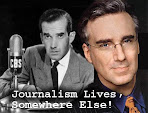OpinionJournal - Featured Article: "from the man who once gave us the 'end of history,' we now have the demise of neoconservatism: 'Promoting democracy and modernization in the Middle East,' writes Francis Fukuyama in a new book, 'is not a solution to the problem of jihadist terrorism; in all likelihood it will make the short-term problem worse.'"
I certainly do not, not hold Francis Fukuyama in high regard, however, this editorial and I disagree; as I have disagreed with this line of thought previously. With regard to "'in all likelihood it will make the short-term problem worse.'" The key here is "short-term," I don't think an increase in deaths due to terrorism is something to pooh, pooh; I only point to the fact that often things in life do get worse, before better.
The editorialist writes, "'Japan took about 100 years to transform itself (and be transformed) from a feudal society into a modern industrial democracy. South Korea made a similar leap in about 40 years; Thailand went from quasi-military dictatorships to a genuine constitutional monarchy in about 20. As the practice of liberal democracy has spread, the time it takes nondemocratic societies to acquire that practice has diminished.'" I would certainly not hold out that it is an assured thing based upon any previous examples, however, neither does the author. As the editorial does not say, Democracy in the Middle East is a forgone conclusion; only that it is better than any other options and based upon history has a much chance of success (more I think), as the naysayers predictions.
The author continues with, "Which brings us back to the question of what American policy should be. One answer is to retreat completely in the hopes of being left alone. This is the formula recently suggested by Osama bin Laden; those who would credit it must also entrust themselves to him." This certainly isn't too hot an option and if we do go this route, let's make sure it doesn't appear that we are taking bin Laden's advice. To continue, another option is "soft power," but soft power, should be used along with "hard power," which the authors says soft without hard does not protect the people. To that I add my concern that, this soft power, alone may be just what would push Democratic institutions further away. Especially if it is Westernization that turns many off; although it is really modernization rather than Westernization that is being pushed away.
In closing; "'But democracy also offers the possibility of greater liberalism and greater moderation, possibilities that have been opened with the courageously pro-American governments of Hamid Karzai, Jalal Talabani and Saad Hariri. And as we stand with them, it seems to us that America's bets are better placed promoting democracies--even if some of them succumb to illiberal temptations--than acceding to dictatorships, which already have.
Or does someone have a better idea?'"
Short, yet thought provoking editorial, which the opinion of may find some saying wishful thinking; yet it is no more wishful than those against the Bush Doctrine and their appearance of offering visions of only failure.
"How did it come to pass that an opposition's measure of a president's foreign policy was all or nothing, success or "failure"? The answer is that the political absolutism now normal in Washington arrived at the moment--Nov. 7, 2000--that our politics subordinated even a war against terror to seizing the office of the presidency." - Daniel Henninger - WSJ 11/18/05
------------------------------------------------
------------------------------------------------
"the slovenliness of our language makes it easier for us to have foolish thoughts." - George Orwell
------------------------------------------------
------------------------------------------------
Monday, February 27, 2006
OpinionJournal - Featured Article
Posted by a.k.a. Blandly Urbane at 9:49:00 AM
OpinionJournal - Featured Article
2006-02-27T09:49:00-07:00
a.k.a. Blandly Urbane
Subscribe to:
Comment Feed (RSS)





















